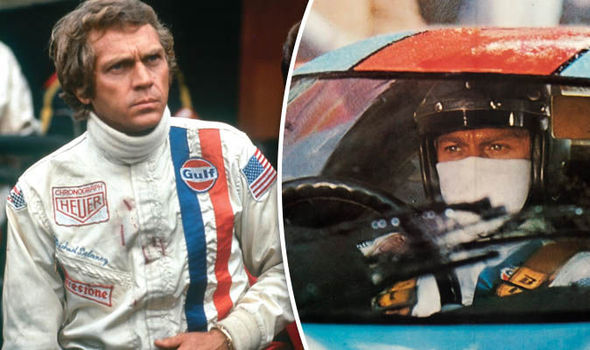Steve McQueen: The Life and Legacy of Hollywood’s King of Cool
Steve McQueen, born Terrence Steven McQueen on March 24, 1930, in Beech Grove, Indiana, was a Hollywood icon whose rugged charm and rebellious spirit made him one of the most enduring figures in American cinema. Best known for his roles in films like *Bullitt*, *The Great Escape*, and *The Magnificent Seven*, McQueen’s life was as dramatic and fascinating as the characters he portrayed on screen.
### Early Life and Struggles
McQueen’s early years were marked by hardship. He was partially deaf due to a childhood infection and was raised by his grandparents on a farm owned by his great-uncle, Claude Thompson, until he was nine years old. His mother, Jullia Crawford, struggled with personal issues, and his father, William McQueen, left the family shortly after Steve’s birth. These early experiences of abandonment and instability would shape McQueen’s tough, self-reliant persona.
At 17, McQueen joined the Marines, seeking discipline and direction. However, his rebellious nature persisted, leading to six weeks of military arrest for going AWOL. Despite this, McQueen found a sense of purpose and camaraderie in the Marines, experiences that later influenced his gritty, no-nonsense acting style.
### Rise to Stardom
After leaving the military, McQueen pursued an acting career, making his Broadway debut in 1956 by replacing Ben 
McQueen’s film career took off in the 1960s, with iconic roles in *The Magnificent Seven* (1960) and *The Great Escape* (1963). His portrayal of the rebellious Captain Virgil Hilts in *The Great Escape* became one of his most memorable performances, particularly the legendary motorcycle chase scene, which showcased McQueen’s love for speed and vehicles.
### Personal Life and Relationships
McQueen’s personal life was as tumultuous as his on-screen roles. He was married three times, first to Neile Adams, with whom he had two children, Terry McQueen and Chad McQueen. His second marriage to actress Ali MacGraw was highly publicized, as MacGraw left her husband, producer Robert Evans, to be with McQueen. The couple’s relationship was intense but short-lived, ending in divorce. McQueen’s third marriage was to model Barbara Minty, who remained with him until his death.
McQueen was also known for his love of vehicles, amassing a collection that included 210 motorcycles, 55 cars, and five airplanes. His passion for speed was not just a hobby but a lifestyle, reflected in his film roles and personal pursuits.
### A Life of Fame and Fear
Despite his fame, McQueen was not immune to fear. After learning that he may have been targeted for murder by the Manson Family, McQueen began carrying a gun at all times, a testament to the underlying vulnerability that often accompanied his tough exterior.
McQueen’s career was filled with notable successes and near misses. He famously turned down one of the lead roles in *Butch Cassidy and the Sundance Kid* due to a billing issue with co-star Paul Newman, a decision that became one of the most talked-about “what-ifs” in Hollywood history.
### Awards and Recognition
Throughout his career, McQueen was recognized for his talents with several nominations, including an Academy Award nomination for Best Actor for his role in *The Sand Pebbles* (1966). He was also nominated for five Golden Globe Awards, reflecting his versatility in both dramatic and comedic roles.
### Legacy and Final Years
Steve McQueen’s life was tragically cut short when he died of mesothelioma on November 7, 1980, at the age of 50. However, his legacy endures. His image was revived in popular culture through various means, including a 2005 Ford Mustang commercial that used CGI and a body double to bring McQueen back to life on screen.
Steve McQueen remains a symbol of cool, a man whose life mirrored the characters he played—tough, independent, and unyielding. His influence on film and popular culture is still felt today, as new generations continue to discover the magnetic appeal of Hollywood’s original “King of Cool.”
Leave a Reply